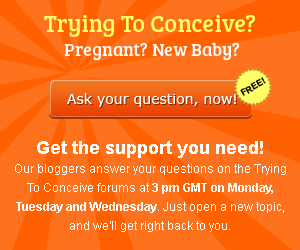Are you trying to conceive, but suffering from painful periods, bleeding between periods, irregular menstrual cycles — or perhaps get no periods at all? What do you need to know about the cause of your menstrual cycle abnormality and how this affects your quest to get pregnant?

There is no such thing as the typical menstrual cycle.
Many women believe that the typical menstrual cycle is 28 days long and regular. In fact, average cycles can last between 21 and 32 days and still be absolutely normal and healthy. Normal menstrual periods last between two and seven days.Common cycle abnormalities
The most obvious problem with menstruation is its total absence. This is called amenorrhea, and it can have many causes — if youre not pregnant or menopausal, you may be stressed or underweight, or experiencing unusual hormonal fluctuations. Women who are not menstruating wont be able to get pregnant. If this applies to you, a make an appointment with your doctor immediately.
Around one in five women experiences painful periods, including cramping. Possible causes are endometriosis, uterine fibroids, and Pelvic Inflammatory Disease. Teenagers are also more likely to have painful periods because of an excess the chemical prostaglandin. If you are older than 20, see a doctor about painful periods. Its possible that you simply have a low tolerance for pain, but if you have a medical problem you certainly want to find out about it before you get pregnant.
Bleeding in between periods is another menstrual cycle abnormality. It may just be caused by ovulation bleeding — which 20 percent of all women of childbearing age experience — but regular bleeding in between periods can also be caused by sexually transmitted infections, Polycystic Ovary Syndrome, or other medical problems. This kind of bleeding should always been explored by a competent medical professional.
What is the cause of your irregular cycles?
Irregular periods — in other words periods that dont come at regular, predictable intervals or intervals that are either shorter than 21 days or longer than 32 days — are perhaps the most common menstrual cycle problem. Irregular periods deserve their own section, because they have many possible causes and women often find themselves clueless as to what they can do about their irregular periods, especially if they would like to conceive a baby. Lets take a look at some of the causes of irregular menstrual periods:
Age is one reason your periods may be irregular. Women usually start menstruating between 10 and 16 years, and start the menopause between 45 and 55. Teens and women in their mid- to late forties normally have no reason to be worried about cycles that fluctuate in length. If you are premenopausal and hoping to get pregnant, your irregular periods are an indication that you should get in touch with a fertility clinic now.
Stress is another disruptive factor for the menstrual cycle. Both emotional stress and physical stress can have a huge impact on the cycle, but these changes are usually temporary. Have you recently lost a lot of weight? Are you a professional athlete or a fitness junkie? Are you buying a house or do you think you may be at risk of losing your job? All of these things can interfere with your cycle, and all of these things can prevent ovulation from taking place during any given cycle.
Medical problems like the ones we mentioned in the previous section can cause irregular cycles too. Polycystic Ovary Syndrome, sexually transmitted infections, and endometriosis can be counted among the usual suspects. Thyroid disorders can also interfere with your cycles, and if you normally have regular periods but suddenly have an irregular cycle, miscarriage, ectopic pregnancy, or just pregnancy can also be responsible. Not that were saying a normal pregnancy is a medical problem, of course!
Birth control is one of the most frequent reasons women who recently decided to try for a baby are experiencing irregular periods. Hormonal contraceptives can cause irregular periods, which are also often without ovulation, for a few months after you quit. This is normal, and not something most women need to fret about. One exception is the injectable birth control method Depo Provera, which is renowned for being an effective form of contraception for much longer than desired.
Finding out when you ovulate
Lets be clear — any woman who is worried about her menstrual cycle after displaying symptoms that could indicate a problem should absolutely seek medical care. The menstrual cycle is such a complex physical system that its really not possible to self-diagnose through the internet or books. Women who are trying to conceive with an abnormal menstrual cycle need to be especially diligent about seeing a doctor, because any medical problem they have may affect their baby as well.
Having said that, most women who have slightly irregular periods will be wondering if they are fertile, in other words if they are ovulating. An ovulation calendar be be a handy and popular tool among women who are trying to get pregnant, but if your cycle lasts 24 days one month and 32 the next, it will absolutely be useless to you. In this case, you could start using ovulation tests as soon as your period comes to an end.
Ovulation tests, which are also called ovulation predictor kits, work by detecting a hormone that only appears upon ovulation. When you get a positive ovulation tests, you dont just find out that you are currently ovulating; you also find out on which cycle day your current ovulation is taking place. This will give you further information about your chances of getting pregnant. The luteal phase is the phase between ovulation and the next period, and women who have a luteal phase shorter than 10 days are extremely unlikely to get pregnant. In these cases, any fertilized egg simply doesnt have the time to implant in the uterine lining successfully.

